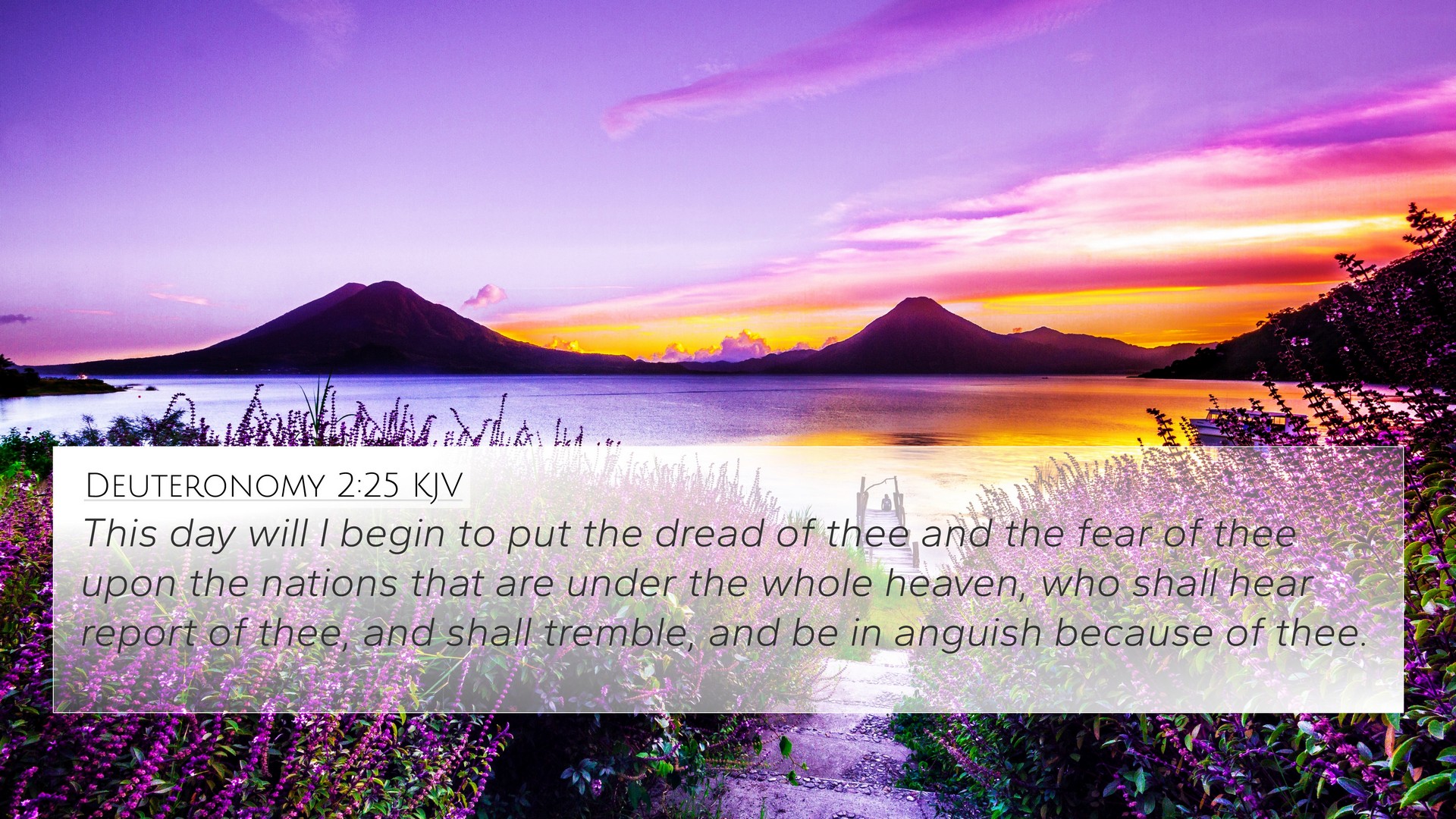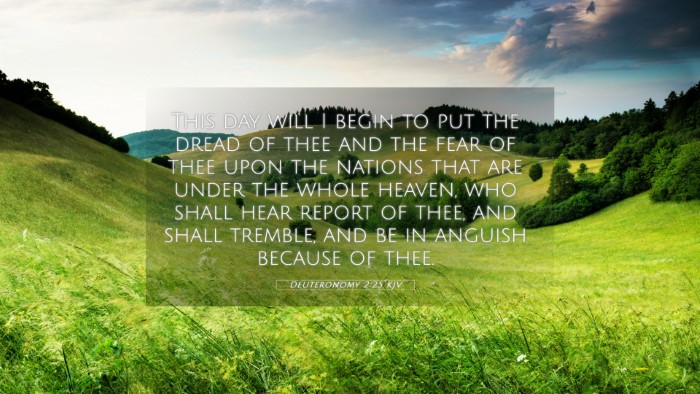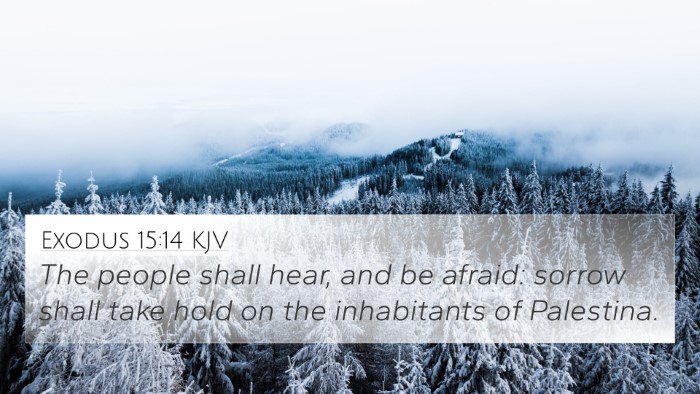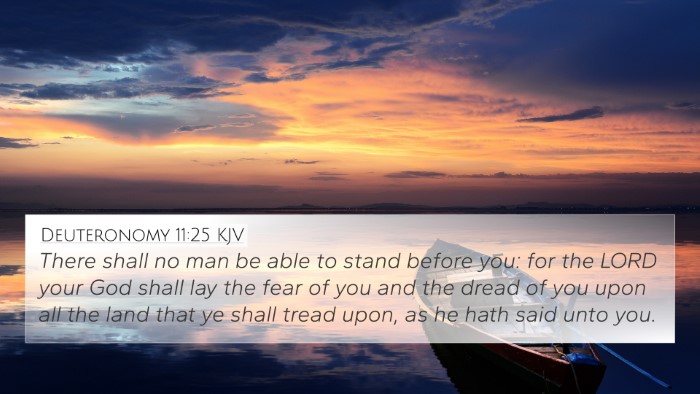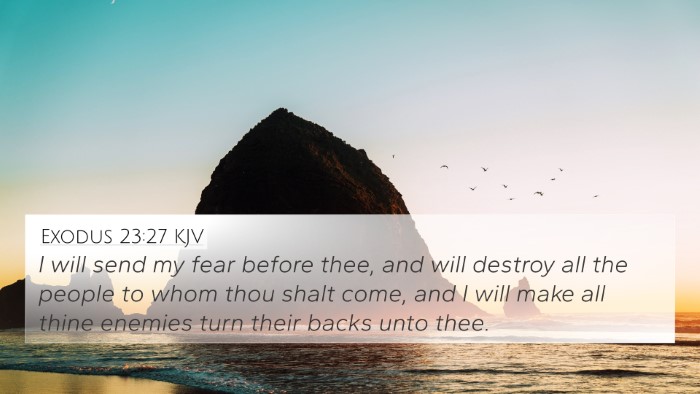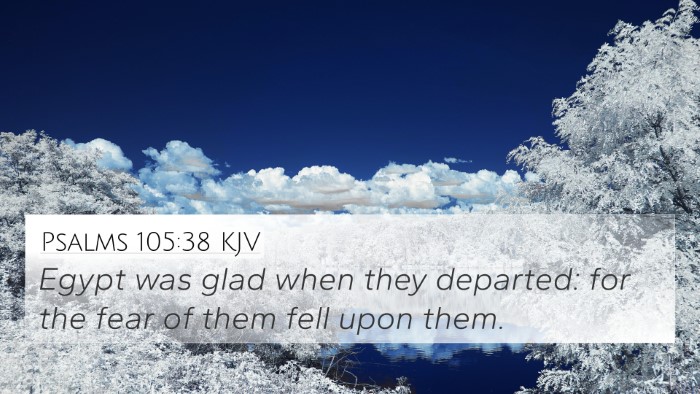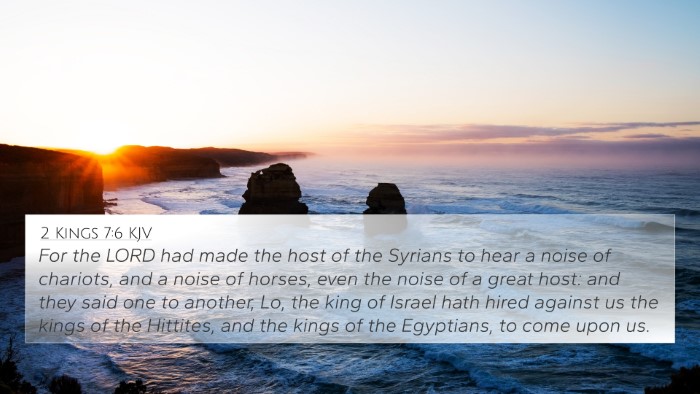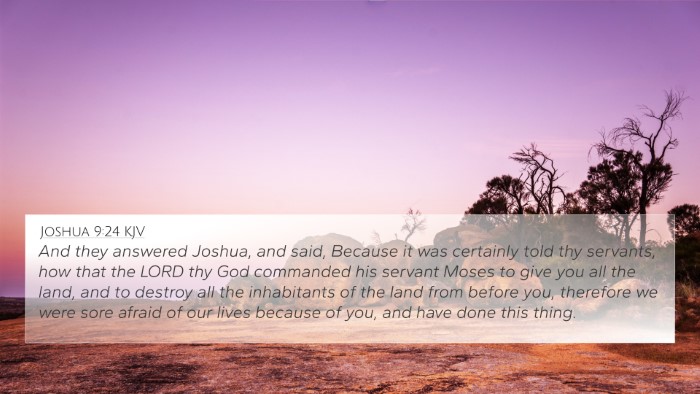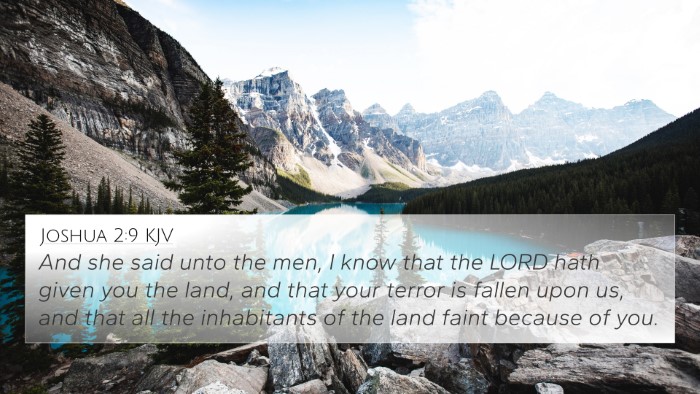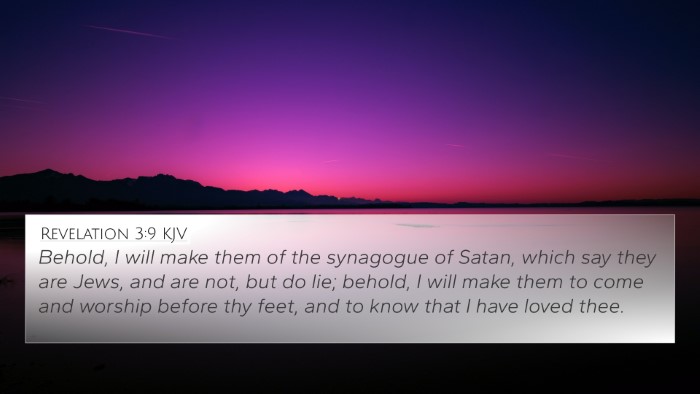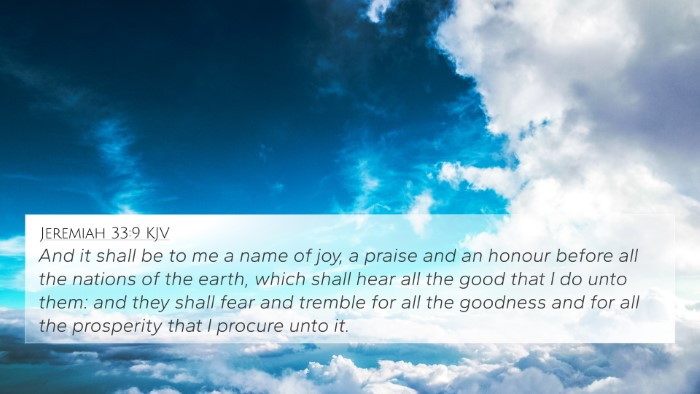Understanding Deuteronomy 2:25
The verse Deuteronomy 2:25 states, "This day will I begin to put the dread of thee and the fear of thee upon the nations that are under the whole heaven, who shall hear report of thee, and shall tremble, and be in anguish because of thee." This verse has rich theological implications and is significant in interpreting the context of God’s work among nations and His people. The commentaries by Matthew Henry, Albert Barnes, and Adam Clarke collectively provide a profound analysis of this verse.
Commentary Insights
1. God’s Sovereign Power
Matthew Henry emphasizes the sovereign power of God, noting that He has the capability to instill fear in the hearts of the nations. The dread mentioned signifies God's direct intervention in the affairs of man. This divine action is part of His larger plan for Israel.
2. Fulfillment of Promises
Albert Barnes points out that this verse serves as a manifestation of God’s promises to the Israelites. It reflects God's assurance that He will deliver the land of Canaan into their hands while the surrounding nations cower in fear.
3. The Dynamics of Fear
Adam Clarke elaborates on the nature of fear as a tool used by God. The apprehension that the nations would feel is not merely psychological but reflects the spiritual reality that God commands respect and authority over all creation.
Significance in Biblical Context
This verse is pivotal in understanding the transition of power concerning the land of Canaan, where Israel was to conquer nations that were formidable and well-established. These insights show how God's providential hand orchestrates historical events to fulfill His covenant promises.
Cross-References for Deuteronomy 2:25
- Exodus 15:14-16: "The people shall hear, and be afraid... All the inhabitants of Canaan shall melt away."
- Joshua 2:9-11: Rahab acknowledges the fear of Israel among the Canaanites.
- Isaiah 41:10: "Fear thou not; for I am with thee..." This reaffirmation of God’s presence echoes the theme of fear and assurance.
- Psalm 105:38: Reflects how the Egyptians were afraid of Israel's presence.
- Hebrews 11:30-31: By faith, the walls of Jericho fell, and Rahab was spared due to her faith amidst fear.
- Jeremiah 1:19: "They shall fight against thee; but they shall not prevail against thee..." illustrates God’s protection.
- Deuteronomy 28:10: "And all people of the earth shall see that thou art called by the name of the LORD; and they shall be afraid of thee."
- 2 Chronicles 20:29: "And the fear of God was on all the kingdoms of those countries..." highlights God's dominance.
- Philippians 2:10-11: Every knee shall bow; this is a wider picture of reverence for God’s authority.
- Matthew 10:28: "And fear not them which kill the body..." draws connections to God's power over fear.
Thematic Connections
The themes found in Deuteronomy 2:25 resonate with broader biblical narratives regarding:
- God’s power and control over nations.
- The fear of God as a means of establishing authority.
- The relationship between faith and fear in the lives of believers.
The Importance of Cross-Referencing
For anyone studying the Bible, cross-referencing biblical texts is essential. It allows for a deeper understanding of scripture as intertextual connections provide layers of meaning. For instance, when one studies Deuteronomy 2:25 alongside Isaiah 41:10, the theme of divine reassurance amidst fear becomes clearer.
Conclusion
In examining Deuteronomy 2:25, one uncovers the profound relationship between God's sovereignty, the fear elicited among nations, and the assurance given to His people. The interconnectedness of scriptures enriches our understanding and enhances our biblical interpretation through thematic Bible verse connections. By exploring comparative Bible verse analysis, one can identify how Biblical themes interact across different contexts and covenants.
Tools for Further Study
For those interested in diving deeper, utilizing a bible concordance or bible cross-reference guide can greatly aid in finding related verses and enhancing one's study of the scripture. Resources like bible chain references and comprehensive Bible cross-reference materials are invaluable for effective bible study methods. Engaging in cross-referencing Bible study methods enables better understanding of the connections between Old and New Testament verses, revealing the depth and continuity of biblical themes.
